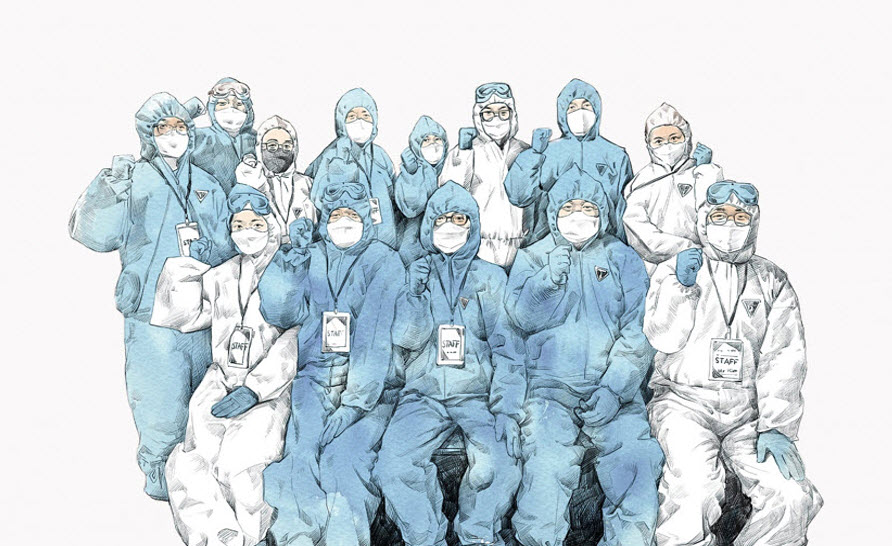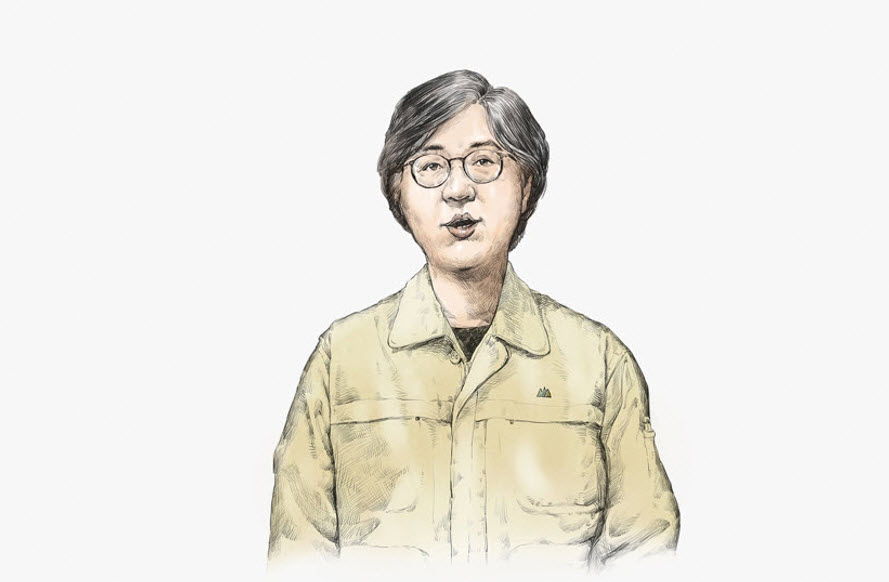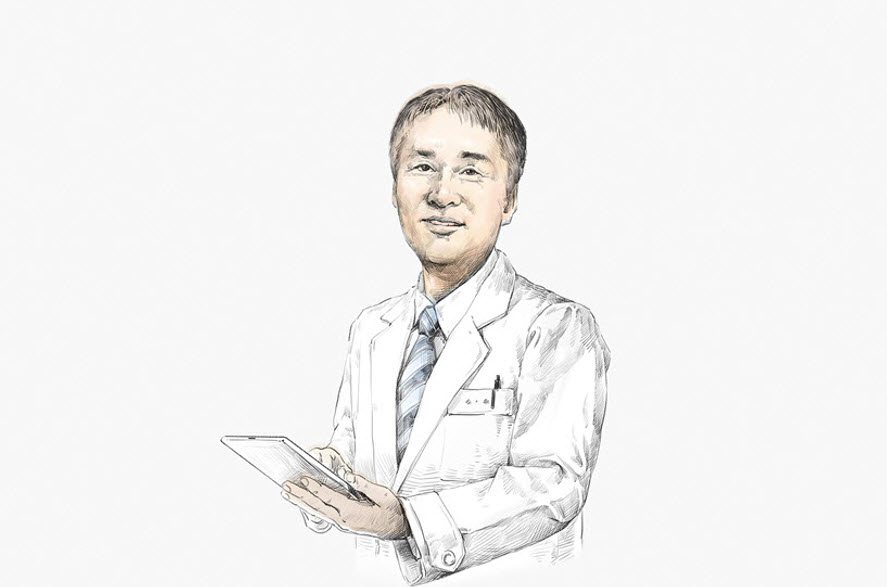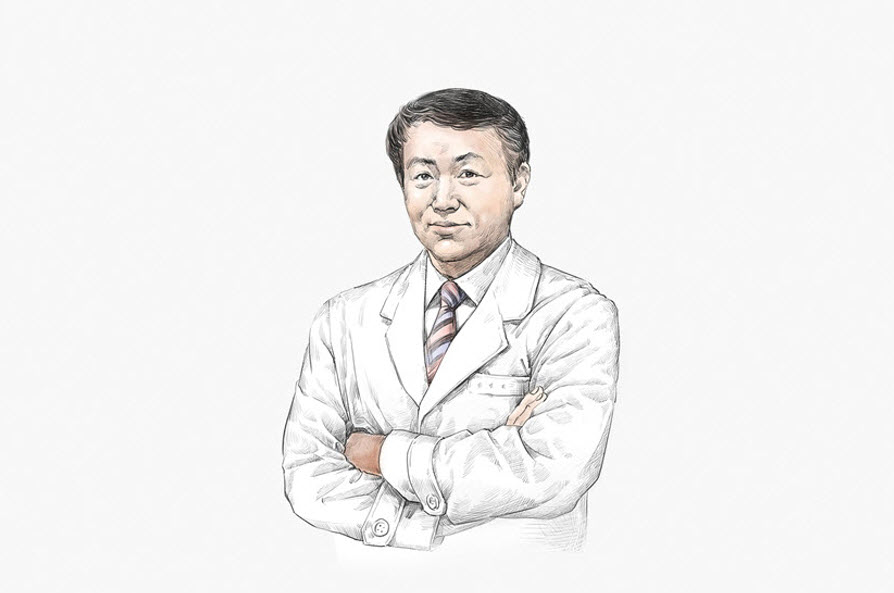
Amidst the COVID-19 crisis, SNU dormitory safely and effectively housed more than half of its students without closing, a feat made possible by the SNU staff.
When the COVID-19 crisis first hit China, SNU dormitory immediately notified its Chinese students that they would need to enter Korea at least two weeks before the start of the semester, go through two weeks of quarantine, and get tested negative for COVID-19 in order to enter the dorm. They applied the same rules to students from the Daegu-Gyeongbuk area when cases began to spike there.
Ten brave SNU staff members willingly gave up their precious free time in order to operate the separate facility for students in quarantine. Working in two groups of five, they took care of the quarantined students around the clock. Dressed in full protective gear, they delivered necessary supplies and checked on the students’ health and well-being. After three weeks of rigorous voluntary work, they themselves underwent the two-weeks quarantine protocol. In the meantime, other SNU staff came in and filled their places.
These SNU staff say that they feel rewarded when the students thank them when they leave the quarantine facility healthy. It is thanks to these heroes that we have been able to maintain some normalcy during the pandemic.
The Power of an Expert, Displayed through Clear and Concise Language

Jung Eun Kyeong (College of Medicine, Class of 1983), Director of Korea Centers for Disease Control and Prevention
Korea’s timely response to the COVID-19 crisis, which has included extensive testing, innovative diagnosis techniques, and mature civic awareness, has been lauded as the gold standard for COVID-19 related policies and has served as a guideline for the quarantine measures of multiple nations around the globe. At the forefront of the Korean health authorities’ response to the pandemic lies the Korea Centers for Disease Control and Prevention (KCDC). As the director of KCDC, Dr. Jung Eun Kyung calmly establishes the guidelines for dealing with COVID-19 for the entire nation. She has now become a household name, trusted to the point that her continued good health is a constant concern for the public.
Having graduated from Seoul National University College of Medicine in 1989, Jung is a specialist in family medicine and a seasoned field veteran who has served as director of the Ministry of Health and Welfare's disease policy division and head of the KCDC’s disease prevention center and emergency situation center. She has been leading KCDC since 2017 as the center’s first female director. In her inauguration speech, she said that she would strive to help build a society that is safe from infectious diseases, stressing that failure to respond quickly to a pandemic can result in a public health crisis with profound socio-economic consequences. Her daily public briefings in which she transparently shares information regarding the pandemic are laden with a certain type of gentle charisma, which seems to embody KCDC’s principles of fact-based efficiency.
Dr. Jung, who is “on-call” for Korea’s response to infectious diseases day and night, published a paper in an academic journal published by the US CDC on the epidemiological investigations and quarantine procedures regarding the outbreak at the Guro Call Center last April.. The paper shared the ins and outs of K-Quarantine, enabling other nations to refer to it when they are taking their own preventive measures. During a special briefing on Children’s Day, a child endearingly asked her, “how can I become a person like you?” Dr. Jung’s attitude of attentive listening and her use of sincere and thoughtful language has earned the trust and respect of many, not just in Korea, but around the world.
Dr. Jung has politely declined an interview, so this piece has been written based on media coverage.
Establishing guidelines for emerging infectious diseases

Oh Myung-don, Head of the Central Clinical Committee for Emerging Disease Control, Professor of Internal Medicine at SNU
He is the country’s foremost authority on infectious disease. Professor Oh Myung-don has studied the etiologies and mechanisms of emerging diseases, AIDS, and viruses with the aim of stopping their progression. He played a huge role in the 2015 MERS outbreak, establishing guidelines for disease control and prevention.
February 2020, Daegu. As the threat of COVID-19 community spread beyond the North Gyeongsang Province became a reality, a new level of national intervention was required for disease prevention and treatment. The Central Clinical Committee for Emerging Disease Control, with Professor Oh Myung-don at its head, dedicated itself to offering counsel to the CDC (Centers for Disease Control and Prevention) and other medical facilities by systematically gathering new information (reports on clinical progress and disease severity, treatment guidelines, indications for discharge, etc.) related to the advancements made in combating the infectious disease.
Our country’s meticulous preventive measures have given us a temporary respite, but the forward-thinking Central Clinical Committee’s predictions are already inspiring national vigilance as they prepare comprehensive, long-term solutions for the future. The Committee has isolated the following as important obstacles that must be overcome: the possibility of a winter wave of COVID-19, potentially even worse than the first; the fact that we need to begin expanding and preparing medical resources immediately, so that we don’t suffer a deficit in the future; the need for a Central Hospital to take immediate and efficient action against infectious diseases; and the need for an information management system that can systematically manage clinical information related to COVID-19. Thanks to the preparations made by the proactive Committee, Korea’s preventive strategies for the future are strong. Recently, Professor Oh was asked in an interview about his dreams for the future. He replied, “I want to make a world that’s free from infectious disease, where all patients suffering from infectious disease can get treatment, and patients will not endure discrimination from society.” We believe that through the efforts of Professor Oh and countless other medical staff, there will come a day where we can all embrace a future free from infectious disease.
*Professor Oh has politely declined an interview, so this piece has been written based on media coverage.
Reassures the Students by Organizing the Pre-examination Room and the Emergency Response Team

Professor Kim Ji Won, Dept. of Internal Medicine and Head of the SNU Health Clinic
In early February, when before the outbreak of local infections in Korea had begun, SNU formed the “COVID-19 Infection Management Committee” at the direction of the Minister of Education. While the pandemic situation got progressively worse, the committee met weekly to discuss procedures on how to accept overseas students. Many universities abroad had already adopted strict shutdown measures to prevent the spread of the virus including closing dormitories, libraries, and laboratories. SNU, however, decided to accept students into the dormitories using a staggered process, and partially opened its libraries. This was all achieved through careful deliberation and thorough preparation by all members of the committee.
According to Kim Ji Won, head of SNU’s health clinic since 2018, the COVID-19 Infection Management Committee includes representatives from various in-school bodies such as the Office of Student Affairs, the Office of Education, the Secretariat, the International Cooperation Headquarters, the Gwanak Student Living Center, the Central Library, the Child Care Support Center, the Graduate School of Public Health, student and graduate student representatives, and health care centers. The committee has held weekly meetings from February 4 through today, , preparing basic guidelines in accordance with the Ministry of Education.
The health clinic operates a pre-examination room to consult with patients with fevers or other symptoms of COVID-19. After having their temperatures checked, the patients suspected to have the virus are transferred by ambulance to the main clinic. By early March, 50 to 100 patients a day were seeking consultation. Recently that number has halved, and fortunately no one on campus has been confirmed to have the virus.
At night, an emergency response team is on standby while the pre-examination room is closed. Nurses at the clinic are on shifts to receive calls with anyone seeking consultation after 6 p.m. Kim Ji Won attributes the success of SNU’s prevention measures timely responses requiring the cooperation of the school community. “We are trying to ensure the comfort and safety of our students, so if there is anything that we can do better, please let us know.”
*This is a translated version of an article written on June, 2020.
Written by Chae Hyun Kim, SNU English Editor, michelle25@snu.ac.kr; Cheesue Kim, SNU English Editor, cheesuerocket@gmail.com
Reviewed by Professor Travis Smith, Department of Asian Languages and Civilizations, tlsmith@snu.ac.kr

